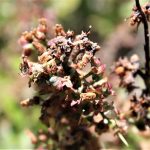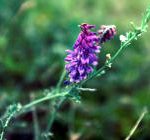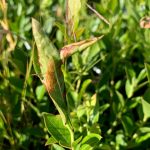Grower Resources
Pest Identification and Management
Fact Sheets
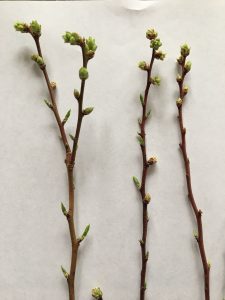
In wild blueberry production, phenology describes the stages of plant development as the season progresses. Wild blueberry develops based on both temperature and day length.
Beginning in 2020, our team set up 10 sites across the wild blueberry growing region of Maine to monitor plant growth. We update this phenology tracking weekly after visiting each site where six plants are monitored for an average growth stage report.
Updated Weekly:
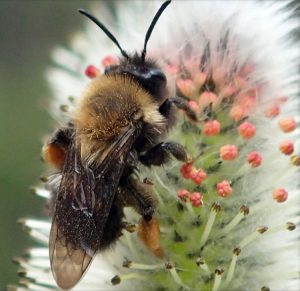
Integrated Pest Management (IPM) is the process of using multiple strategies to manage insect, disease, and weed pest populations at sustainable levels for the long term.
As farmers and land managers, it is not our goal to eliminate all pests in agricultural fields with control, but to manage pest populations to economical and market driven levels of tolerance. By using IPM we provide living habitats for soil organisms, pollinators, and wildlife while still producing high quality wild blueberries. Following the IPM process, cultural and mechanical methods of pest management are explored first and chemical management is used as a last resort.
(Photo: Digger bee on willow (Salix sp.) – Frank Drummond.)
Solar Agrivoltaics

If you’re interested in learning whether your farm could host solar arrays above blueberry plants, visit our Agrivoltaics page or contact us.
Land Acknowledgement
The University of Maine recognizes that it is located on Marsh Island in the homeland of the Penobscot Nation, where issues of water and territorial rights, and encroachment upon sacred sites, are ongoing. Penobscot homeland is connected to the other Wabanaki Tribal Nations — the Passamaquoddy, Maliseet, and Mi’kmaq — through kinship, alliances and diplomacy. The University also recognizes that the Penobscot Nation and the other Wabanaki Tribal Nations are distinct, sovereign, legal and political entities with their own powers of self-governance and self-determination. The Wild Blueberry Cooperative Extension and Research team recognizes that the ongoing cultivation of wild blueberry in Maine is based on the knowledge and experience gained by generations of Passamaquoddy, Mi’kmaq, Maliseet, and Penobscot communities; these communities continue to cultivate and celebrate wild blueberry today.

